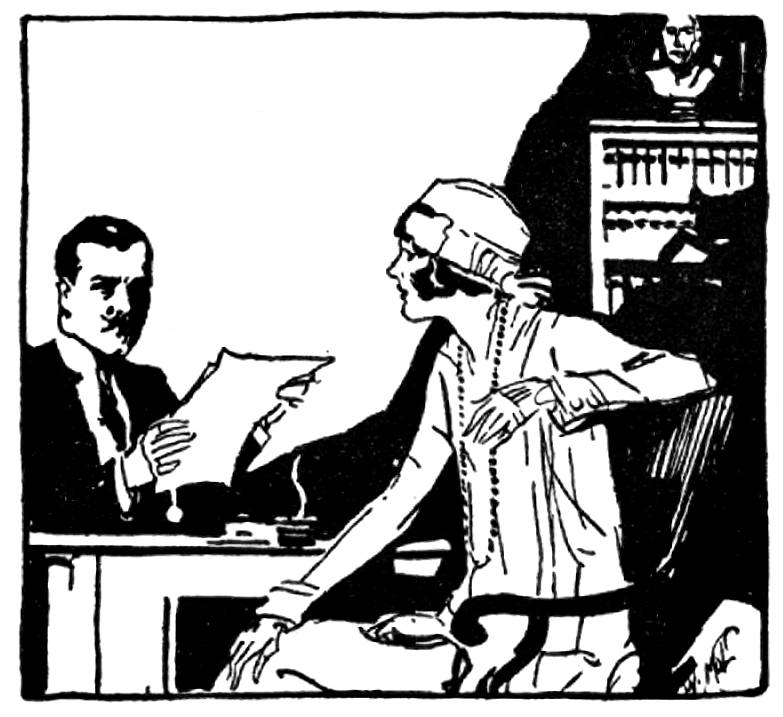The Missing Will

The problem presented to us by Miss Violet Marsh made a ratherpleasant change from our usual routine work. Poirot had received abrisk and businesslike note from the lady asking for an appointment,and he had replied, asking her to call upon him at eleven o’clock thefollowing day.
She arrived punctually—a tall, handsome young woman, plainly butneatly dressed, with an assured and businesslike manner—clearly, ayoung woman who meant to get on in the world. I am not a great admirerof the so-called New Woman myself, and in spite of her good looks, Iwas not particularly prepossessed in her favor.
“My business is of a somewhat unusual nature, M. Poirot,” she began,after she had accepted a chair. “I had better begin at the beginningand tell you the whole story.”
“If you please, mademoiselle.”
“I am an orphan. My father was one of two brothers, sons of a smallyeoman farmer in Devonshire. The farm was a poor one, and the eldestbrother, Andrew, emigrated to Australia, where he did very wellindeed, and by means of successful speculation in land became a veryrich man. The younger brother, Roger, my father, had no leaningstoward the agricultural life. He managed to educate himself a little,and obtained a post as a clerk in a small firm. He married slightlyabove him; my mother was the daughter of a poor artist. My father diedwhen I was six years old. When I was fourteen, my mother followed himto the grave. My only living relation then was my Uncle Andrew, whohad recently returned from Australia and bought a small place in hisnative county, Crabtree Manor. He was exceedingly kind to hisbrother’s orphan child, took me to live with him, and treated me inevery way as though I were his own daughter.
“Crabtree Manor,” she pursued, “in spite of its name, is really onlyan old farmhouse. Farming was in my uncle’s blood, and he wasintensely interested in various modern farming experiments. Althoughkindness itself to me, he had certain peculiar and deeply rooted ideasas to the upbringing of women. Himself a man of little or noeducation, though possessing remarkable shrewdness, he placed littlevalue on what he called ‘book knowledge.’ He was especially opposed tothe education of women. In his opinion, girls should learn practicalhousework and dairy work, be useful about the home, and have as littleto do with book-learning as possible. He proposed to bring me up onthese lines, to my bitter disappointment.
“I rebelled frankly. I knew that I possessed a good brain, and hadabsolutely no talent for domestic duties. My uncle and I had manybitter arguments on the subject, for though much attached to eachother, we were both self-willed. I was lucky enough to win ascholarship, and up to a certain point was successful in getting myown way. The crisis arose when I resolved to go to Girton. I had alittle money of my own, left me by my mother, and I was quitedetermined to make the best use of the gifts God had given me. I hadone long final argument with my uncle. He put the facts plainly beforeme. He had no other relations, and he had intended me to be his soleheiress. As I have told you, he was a very rich man. If I persisted inthese ‘newfangled notions’ of mine, however, I need look for nothingfrom him. I remained polite, but firm. I should always be deeplyattached to him, but I must lead my own life. We parted on that note.‘You fancy your brains, my girl,’ were his la